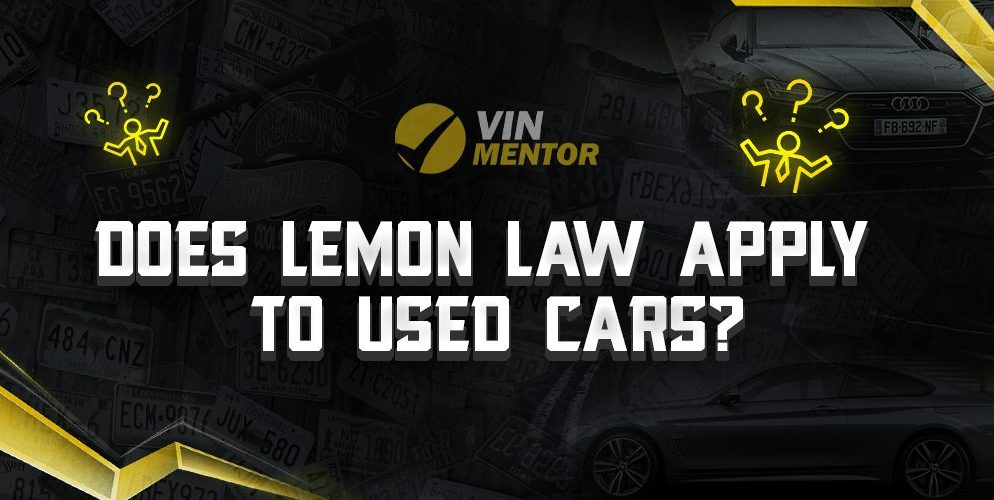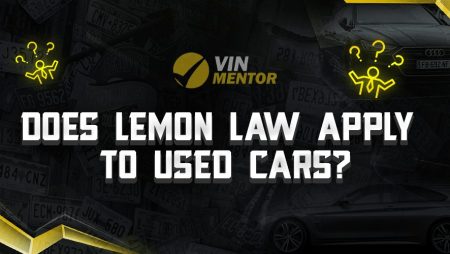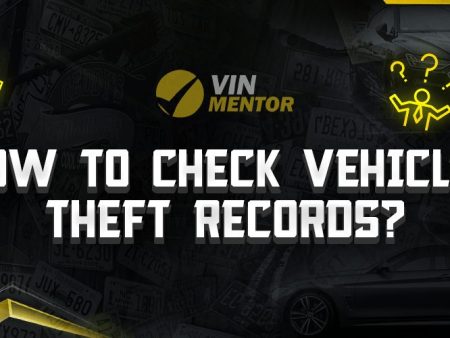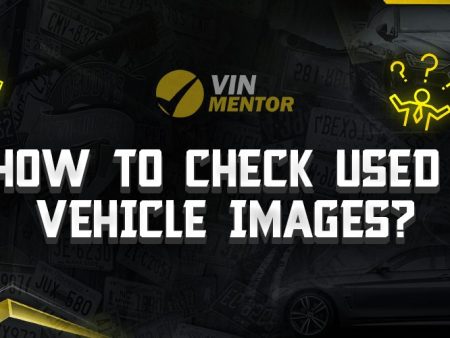

When purchasing a used car, it’s crucial to understand the legal protections that are available to you as a consumer. The Lemon Law, typically associated with new vehicles, is a topic of interest for many potential used car buyers. In this article, we will explore the applicability of Lemon Law to used cars and delve into the key considerations surrounding this issue.
Key Takeaways
- Lemon Law regulations vary from state to state, making it essential to research the laws specific to your location.
- Some Lemon Law statutes consider mileage and age restrictions when determining the eligibility of a used car for protection.
- Existing warranties on used cars might offer recourse in cases of defects or mechanical issues.
- Consulting an attorney with expertise in Lemon Law can provide valuable guidance and help you navigate any legal challenges.
Lemon Law: An Overview
Lemon Laws are designed to protect consumers from defective vehicles. These laws generally aim to provide remedies or compensation if a vehicle exhibits persistent issues that substantially impair its use, safety, or value. While Lemon Law is primarily associated with new cars, some states extend these protections to used cars as well.
State-Specific Lemon Law Variations
Each state in the U.S. has its own Lemon Law statutes, and these laws can significantly differ in their coverage and requirements. Therefore, it’s important to familiarize yourself with the specific regulations in your state. Some states provide comprehensive coverage for used cars, while others may have limitations based on mileage and age.
Mileage and Age Restrictions
Certain states impose mileage and age limitations when determining whether a used car qualifies for Lemon Law protection. For example, a state might require the vehicle to be within a specified number of miles driven or a particular age to be eligible for coverage. It’s essential to be aware of these restrictions and their potential impact on your situation.
Existing Warranties and Protection
Used cars often come with manufacturer’s warranties or extended service contracts, which can serve as a form of protection against defects or mechanical issues. These warranties may cover repairs, parts replacements, or even the option to return the vehicle under certain circumstances. Reviewing the terms and conditions of any existing warranties is crucial before making a purchase.
Seek Legal Advice
Navigating the complexities of Lemon Law can be challenging, especially when it comes to used cars. If you believe you have a potential Lemon Law case, it is advisable to consult with an attorney who specializes in this area of law. They can assess your situation, provide guidance on the specific laws in your state, and help you understand your rights and options.
Conclusion
While Lemon Law protections primarily apply to new cars, it’s important to research the specific regulations in your state to determine if they extend to used cars as well. Understanding the provisions of Lemon Law and any applicable restrictions based on mileage or age is crucial before making a used car purchase. Additionally, seeking legal advice from an attorney with expertise in Lemon Law can provide valuable insights and ensure that you are well-informed about your rights and potential remedies. Remember to conduct a comprehensive vehicle history check, including a VIN check, to gather as much information as possible before finalizing your decision. To assist you in this process, we recommend exploring our list of recommended best VIN Check Websites, which can provide detailed reports on a vehicle’s history and potential red flags.
FAQ
Can I rely on the Lemon Law to protect me when buying a used car?
The applicability of Lemon Law to used cars varies from state to state. While some states extend these protections to used cars, others may have limitations based on mileage and age. It’s crucial to research the specific regulations in your state to determine if they apply.
What are mileage and age restrictions, and how do they affect Lemon Law coverage for used cars?
Some states impose mileage and age limitations to determine if a used car qualifies for Lemon Law protection. These restrictions require the vehicle to be within a specified number of miles driven or a particular age. It’s important to be aware of these limitations as they can impact your eligibility for coverage.
If my used car has an existing warranty, does it offer any protection under the Lemon Law?
Used cars often come with manufacturer’s warranties or extended service contracts, which can provide protection against defects or mechanical issues. These warranties may cover repairs, parts replacements, or even the option to return the vehicle under certain circumstances. Reviewing the terms and conditions of any existing warranties is essential before making a purchase.
What should I do if I suspect my used car is a lemon?
If you believe you have a potential Lemon Law case, it is advisable to consult with an attorney who specializes in this area of law. They can assess your situation, provide guidance on the specific laws in your state, and help you understand your rights and options.
What other steps should I take to ensure a confident used car purchase?
Conducting a comprehensive vehicle history check, including a VIN check, is recommended before finalizing your decision. This process can provide valuable information about the car’s past, including any reported issues or red flags. Exploring recommended best VIN Check Websites can assist you in obtaining detailed reports on a vehicle’s history and potential concerns.












